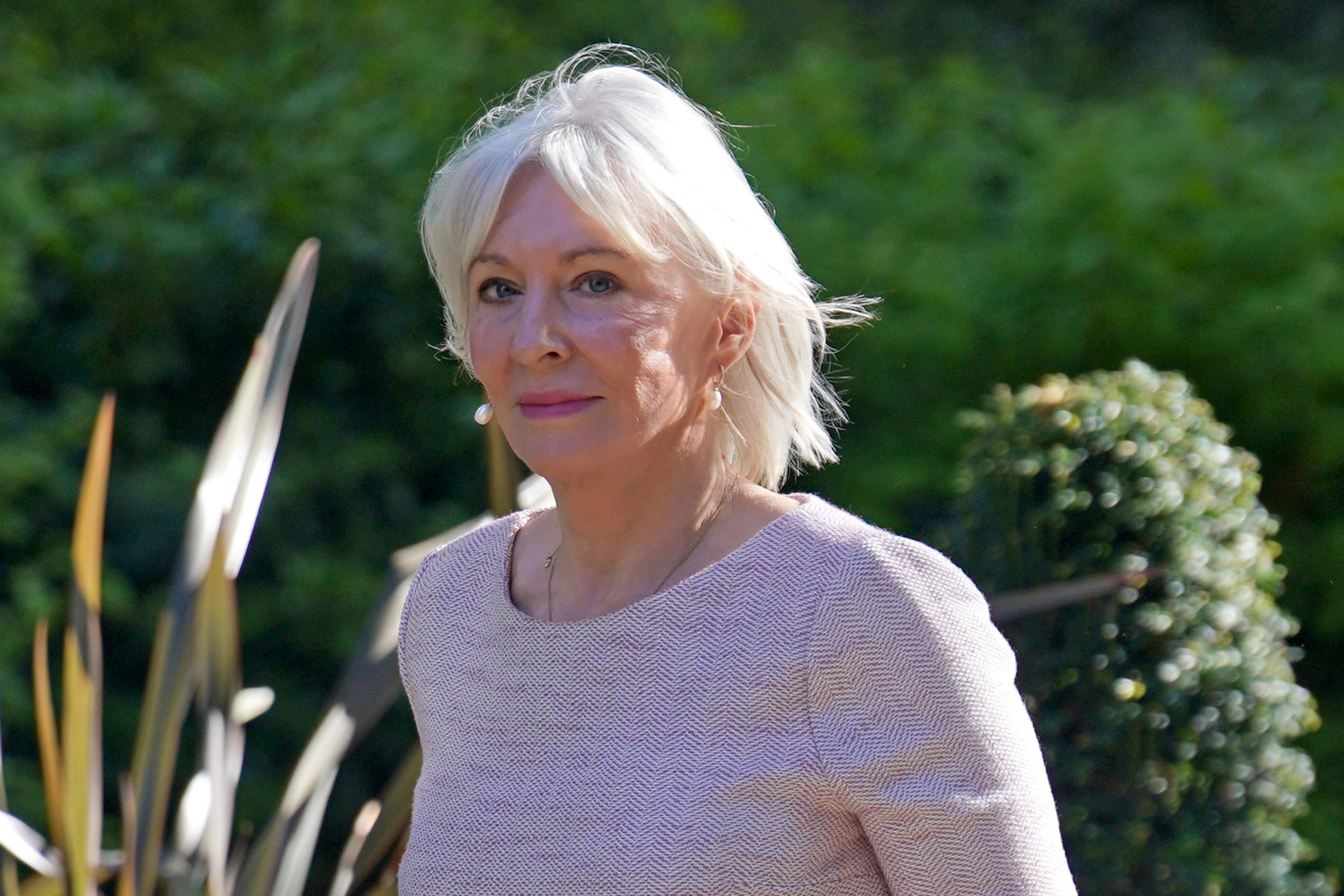Ofcom clarifies rules on politicians presenting TV and radio programmes
Former cabinet ministers Nadine Dorries and Jacob Rees-Mogg are both set to front new talk shows.

Your support helps us to tell the story
From reproductive rights to climate change to Big Tech, The Independent is on the ground when the story is developing. Whether it's investigating the financials of Elon Musk's pro-Trump PAC or producing our latest documentary, 'The A Word', which shines a light on the American women fighting for reproductive rights, we know how important it is to parse out the facts from the messaging.
At such a critical moment in US history, we need reporters on the ground. Your donation allows us to keep sending journalists to speak to both sides of the story.
The Independent is trusted by Americans across the entire political spectrum. And unlike many other quality news outlets, we choose not to lock Americans out of our reporting and analysis with paywalls. We believe quality journalism should be available to everyone, paid for by those who can afford it.
Your support makes all the difference.Ofcom has clarified the regulator’s rules around politicians presenting, and appearing on, TV and radio programmes, following the news that former cabinet ministers Nadine Dorries and Jacob Rees-Mogg will front new talk shows.
Last month it was announced former culture secretary Dorries will host a Friday night talk show for TalkTV, while Tory MP for North East Somerset Rees-Mogg will front a regular programme for GB News.
Following an increase in the number of questions related to the presence of former and current politicians on TV and radio, the media watchdog acknowledged that the rules “can seem complicated” but are “incredibly important”.
Ofcom said politicians are allowed to present TV and radio shows, but there are “some exceptions”.
By means of preserving an expected level of impartiality to broadcasters’ news bulletins, the regulator’s rules say: “No politician may be used as a newsreader, interviewer or reporter in any news programmes unless, exceptionally, it is editorially justified.
“In that case, the political allegiance of that person must be made clear to the audience.”
Where non-news content is concerned, Ofcom said: “Outside of news programmes, there is no Ofcom rule that prevents a serving politician or political candidate from hosting or appearing on a TV or radio show – provided they aren’t standing in an election taking place, or about to take place.
“This means that politicians are allowed to present current affairs programmes, such as audience phone-ins, but they must make sure a range of views are reflected in their programme.”
The regulator said the rules differ during election and referendum periods, and that during such periods any political candidates “must not present any TV or radio programme”.
It added that this “includes programmes that have no discussion of politics or current affairs”.
Candidates and referendum representatives are, however, permitted to appear in, but not present, non-political programmes that were planned or scheduled prior to the election or referendum period.
Dorries, Tory MP for Mid Bedfordshire, will launch Friday Night With Nadine on February 3 on TalkTV, joining a roster that also includes Piers Morgan, Jeremy Kyle, Vanessa Feltz and Sharon Osbourne.
The first of her weekly hour-long programmes will feature an interview with former prime minister Boris Johnson.
The news of Dorries’ most recent project followed the announcement that hardline Brexiteer and Boris Johnson loyalist Rees-Mogg will launch a new GB News show, on which he will “debate the hot topics of the day” and feature guests from “across the political spectrum”.
Rees-Mogg, who was Brexit opportunities minister and served briefly as business secretary, will also take his show on tour, broadcasting in front of live audiences in towns and cities across the country.
Dorries was accused by Parliament’s anti-corruption watchdog, the Advisory Committee on Business Appointments (Acoba), of breaking Government rules by not consulting the body before accepting the role.